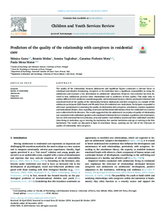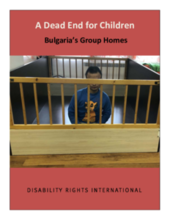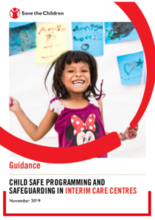Displaying 381 - 390 of 1510
The aim of this study was to comprehend the magnitude of the situation of children deprived of liberty, its possible justifications and root causes, as well as conditions of detention and their harmful impact on the health and development of children.
This study aims to analyze different level predictors (sociodemographic and institutional history-related, emotional/relational and contextual level) of the quality of the relationship between adolescents and their caregivers, in a sample of 326 adolescent participants (228 female and 98 male) from 20 residential care institutions.
The main finding of this report from Disability Rights International (DRI) is that Bulgaria has replaced a system of large, old orphanages with newer, smaller buildings that are still operating as institutions.
This chapter from the book Education in Out-of-Home Care examines a policy change to affect the overall ecology of youth villages (Israeli residential schools), aimed at emphasizing high school academic achievements as a key to future success.
This chapter from the book Education in Out-of-Home Care assesses a pilot project aimed at improving the school-based learning of children in residential care in Austria, Croatia, France, Germany and Spain.
The aim of this study is to examine mental ill-health amongst children known to social services based on care exposure including those who remain at home, those placed in foster care, kinship care or institutional care and the general population not known to social services.
The objective of the work described in this chapter was to know the daily routine of a shelter for children aged 0 to 6 located in Espírito Santo and understand the factors involved in the psychosocial development of children in foster care.
This chapter’s aim is to report the experience of using Ecological Engagement in a research of interdisciplinary character developed with teenage girls, aged 10–14, inserted in two care institutions for protection measures in Pernambuco state, Brazil.
In this cross-sectional study 86 children orphaned by AIDS residing in care giving institutions for HIV positive children in Mangalore were assessed for their clinico-epidemiological profile and nutritional status.
This document outlines some of the potential risks children face in Interim Care Centres and suggests how to manage them to ensure that children are as safe as possible.



